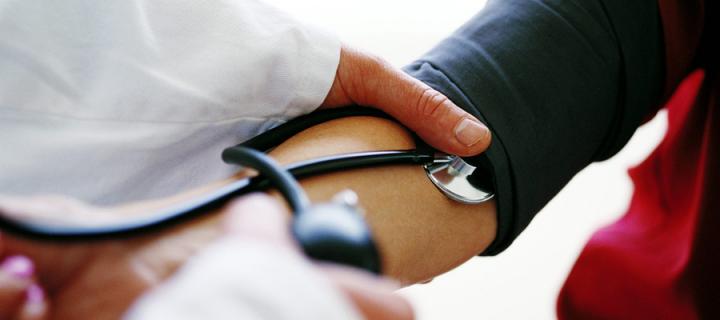TASMIN5S
Towards An integrated Self-Monitoring solutIoN for stroke/TIA.
This research will develop and test a new system (intervention) to lower the blood pressure of stroke survivors and those who have had Transient Ischaemic Attacks (TIAs). The intervention is based around stroke/TIA survivors (or their carers) measuring and managing their blood pressure at home, with input from a GP or specialist when needed.
After having a stroke or TIA, 30% of people will go on to have another stroke/TIA in the next five years. The best way to reduce the risk of another stroke is to reduce high blood pressure, and yet at present a significant proportion of stroke survivors don’t have their high blood pressure properly controlled (perhaps one third).

How will the research have an impact on stroke survivors?
If the system proves effective at lowering blood pressure, and is introduced to the NHS, stroke/TIA survivors will benefit by being less likely to have a further stroke or TIA.
We also expect that stroke survivors will benefit because they will be more involved in their own care.
How does the research build on research that has already been done?
Most research on controlling blood pressure with self-monitoring has been done with people who haven’t had a stroke or TIA. Our group has already shown, in studies where most people haven’t had a stroke/TIA, that measuring your own blood pressure at home (‘self-monitoring’), accompanied by careful adjustment of blood pressure medication by your GP, leads to better control of blood pressure. We have also shown that it helps to lower blood pressure if you can make decisions about adjusting your medication, following advice from your GP.
These self-monitoring systems seem to work because people are more likely to take their medication consistently, and because GPs are more likely to prescribe additional medication when it’s needed.
This proposed research goes further:
- We will focus only on people who have had a stroke or TIA, many of whom will have stroke-related difficulty in speech, movement or the ability to understand.
- People will have the choice of how much they want to be involved in deciding when to change their blood pressure medication.
- GPs will receive reminders to check for problems their patients may have with taking medication and to refer them to specialists if their blood pressure doesn’t come down enough with self-monitoring.
Along with the University of Edinburgh, the research will be conducted by colleagues from the Universities of Oxford (lead), Cambridge and Southampton and will be carried out in three centres: Oxford, Cambridge and Edinburgh.


